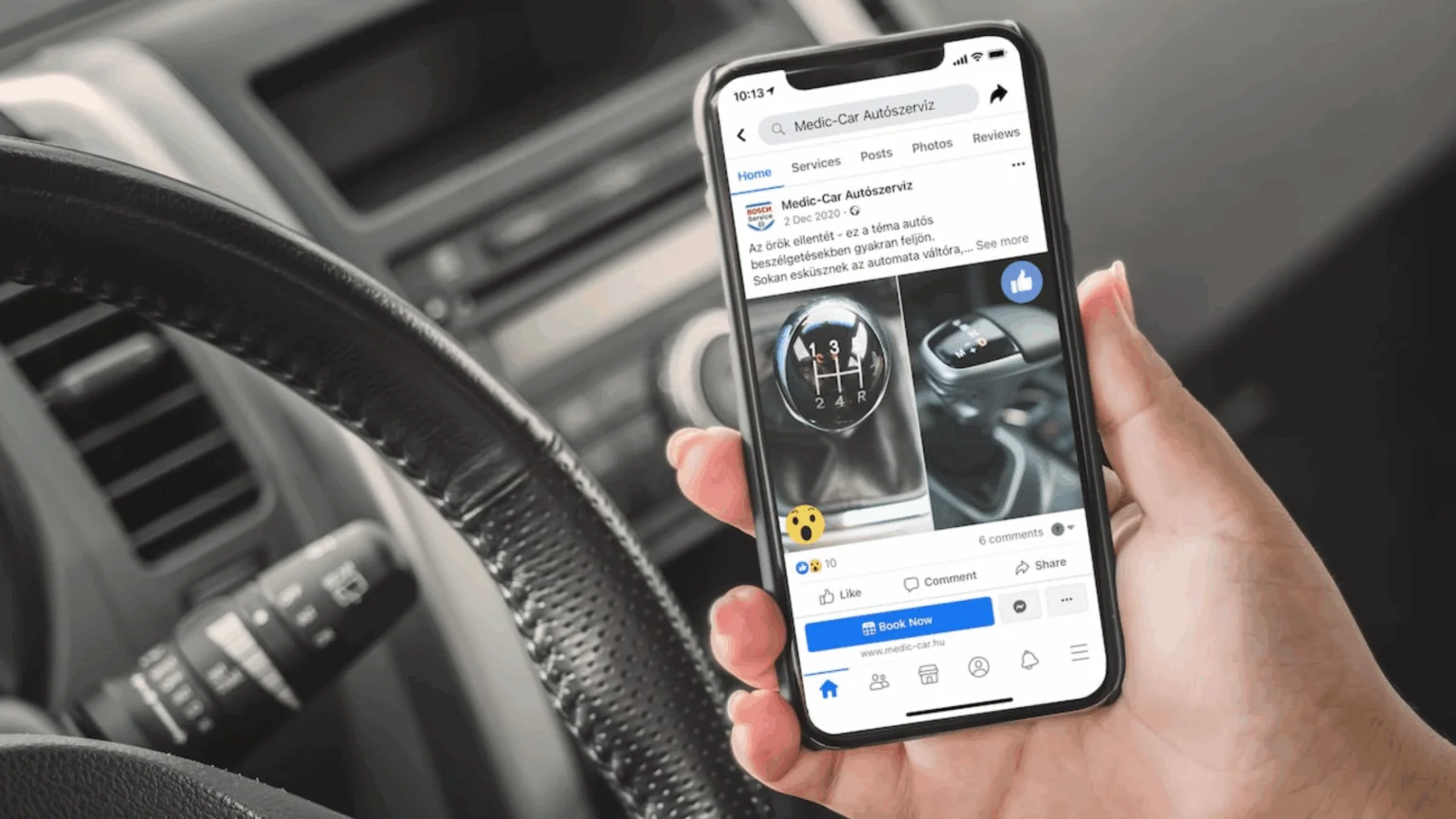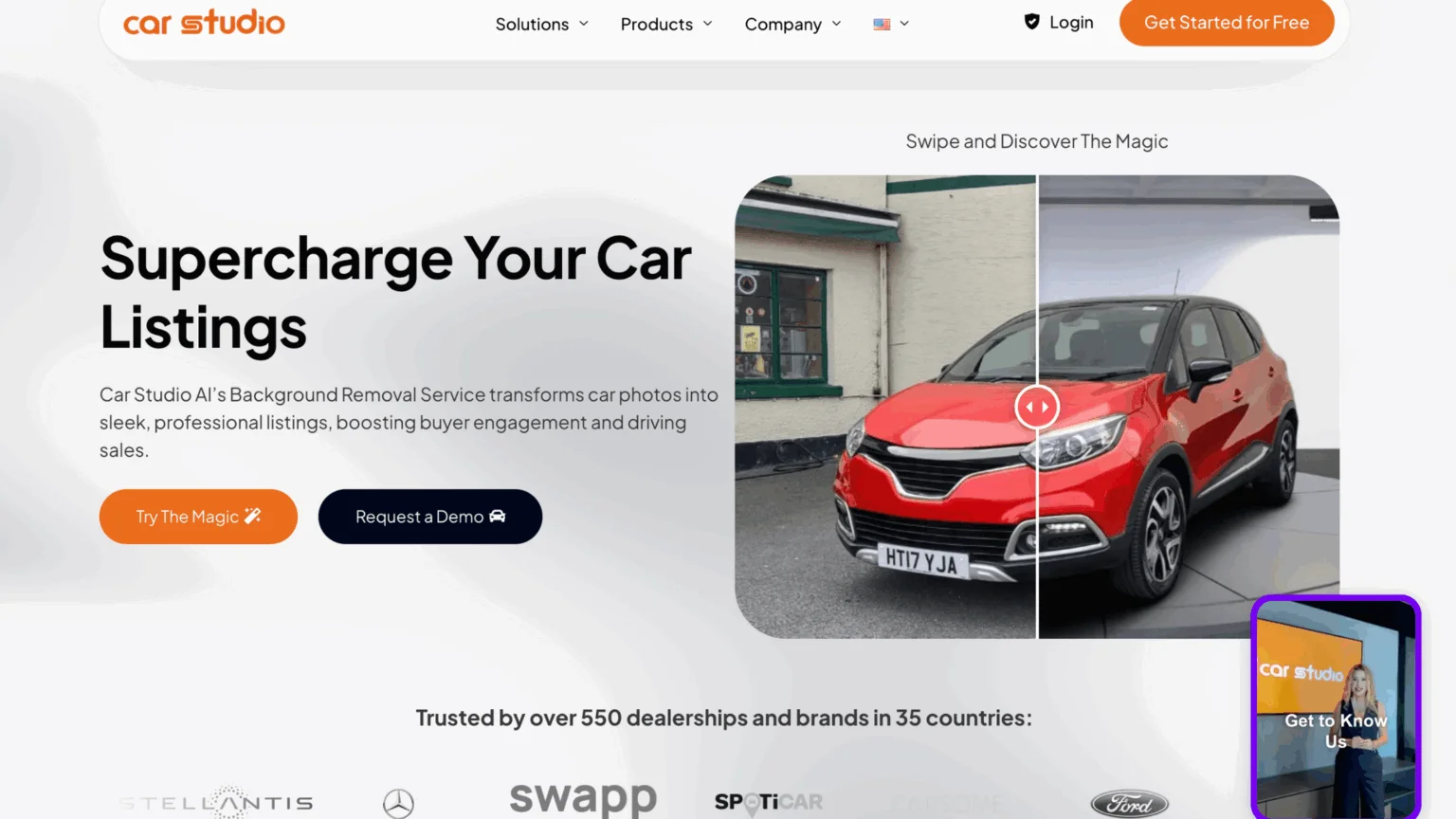
Top Auto Social Media Trends for 2025 So Far
Top Auto Social Media Trends for 2025 So Far
New social media automotive trends this 2025 are reshaping the way dealerships connect with tech-savvy buyers. Let’s dive into the hottest trends of 2025 that every automotive marketer should know.
In an era where digital presence is synonymous with market existence, understanding and leveraging the latest trends in automotive social media marketing can be your dealership’s game-changer. This year, the automotive industry experiences a unique blend of innovative marketing strategies and cutting-edge technology, shaping the way cars are sold, particularly in the used car segment. From AI-driven car photography to dynamic 360 photography, the trends are not just about selling a car but about crafting an experience that resonates with tech-savvy buyers.
Introduction: Why Embrace New Social Media Trends in Automotive?
The digital landscape is evolving, and so is the consumer journey in purchasing vehicles. Potential buyers are increasingly relying on social media and online platforms to make informed decisions. With new social media automotive trends emerging, dealerships need to stay ahead to not only meet but exceed customer expectations. Our unique value proposition lies in harnessing these trends effectively to boost your visibility and sales.
Engaging with Cutting-Edge Trends
Harnessing AI and Advanced Photography
Araç Satışlarında Yapay Zeka Fotoğrafçılığı: Yapay zeka teknolojisi, araç satış fotoğrafçılığını devrim niteliğinde değiştiriyor; daha sofistike görüntü yakalama, düzenleme ve arka plan iyileştirme imkanları sunuyor. Car Studio AI gibi platformlar, bayilere hızlı bir şekilde profesyonel düzeyde araç görselleri oluşturma gücü veriyor — bu da görsel çekiciliği artırıyor ve ilanların performansını yükseltiyor. Kaliteli görseller, özellikle Maine gibi ikinci el araç satışlarının yoğun olduğu bölgelerde veya Las Vegas gibi hareketli pazarlarda, çevrim içi pazaryerlerinde artık kritik bir öneme sahip.
Yapay zeka destekli görsellerin kullanımı sadece estetikle ilgili değil — etkiyle ilgilidir. İyi hazırlanmış araç fotoğrafları, sosyal medya etkileşimini büyük ölçüde artırabilir, böylece ilanlarınızın daha fazla görüntülenme ve talep almasını minimum çabayla sağlayabilirsiniz.
Sürükleyici Bir Deneyim İçin 360 Derece Fotoğrafçılık: Araç ilanlarında 360 derece görünüm sunmak, çevrim içi alıcılar için sanal bir “dokun ve hisset” deneyimi oluşturarak etkileşim ve güveni önemli ölçüde artırır. Car Studio AI’nin 360 derece fotoğrafçılık çözümleri, bayilerin araçların her açısını sorunsuz bir şekilde sergilemesini sağlar ve müşterilere showrooma gelmeden bile ilerlemeleri için ihtiyaç duydukları güveni verir.
Kısa ve dinamik videolar — özellikle 15 saniyelik tanıtımlar — 360 derece fotoğrafçılığı tamamlar ve mobil dostu, hızlı bir şekilde araçları sanal ortamda deneyimleme imkanı sunar. Bu strateji, günümüz tüketici davranışlarıyla uyumlu olup hızlı ve etkileşimli içeriklere yönelik talebi karşılar.
Yenilikçi Sosyal Medya Pazarlama Stratejileri

Content Personalization: Tailoring content to specific demographics, such as car dealership social media campaigns targeting local audiences with personalized offers, can significantly increase engagement and conversion rates.
Boosting Visibility with Employee Advocacy: Encouraging your team to share dealership highlights and customer successes within their own networks extends your brand’s reach organically. Personal connections often carry more influence than brand pages alone.
Social Selling and Influencer Partnerships: Collaborations with automotive influencers can tap into their follower base, providing authenticity and extending reach. Innovative car salesman social media ideas, like live Q&A sessions or behind-the-scenes tours, can also create buzz and foster trust.
Authentic engagement — rather than direct selling — is becoming the hallmark of successful automotive social strategies. Dealerships that prioritize conversations and helpful interactions often build stronger buyer trust over time.
Embracing Auto Social Media Marketing Best Practices
Successful auto social media marketing strategies often hinge on understanding consumer psychology. As noted by Reddit Business, the key is not just showcasing the vehicle, but storytelling around lifestyle, aspiration, and ownership pride. Building authentic engagement, as suggested in this Medium article, positions your dealership as a trusted advisor rather than just another seller.
Optimization and Analytics
Data-Driven Decision Making: Utilizing social media analytics tools to understand audience behavior and preferences helps refine marketing strategies and tailor content more effectively.
In addition to performance metrics, monitoring customer conversations online (social listening) can reveal emerging needs and preferences, helping dealerships stay ahead of shifting market trends.
SEO for Automotive Dealerships: Implementing SEO best practices on social media content and profiles increases visibility and attracts more organic traffic, crucial for niche markets like used cars in Maine.
Ready to put 2025’s top automotive social media trends into action? Let’s help you attract more buyers and close more sales.
Transform My Dealership
FAQs About Automotive Social Media Trends

Q: What is the impact of AI on automotive photography?
AI enhances car photography by improving image quality through better lighting, framing, and detail enhancement, making online listings more attractive.
Q: How can 360 photography increase car sales?
360 photography offers potential buyers a virtual inspection of the car, reducing uncertainty and building trust, which is particularly effective for online car sales environments.
Q: What are some effective car dealership social media strategies?
Personalized content, community engagement through comments and live sessions, and targeted ads based on user behavior are effective strategies.
Q: How does social selling influence car buyers?
Social selling leverages the trust and authority of influencers or existing customers, which can significantly sway purchasing decisions.
Q: Can SEO techniques be applied to social media for automotive marketing?
Yes, using targeted keywords in posts and profiles, optimizing images with tags, and creating quality backlinks can enhance search visibility on social media.
Q: What are some creative car sales advertising ideas for social media?
Innovative car sales advertising on social platforms includes hosting virtual car tours, running flash discount campaigns, and launching “day-in-the-life” behind-the-scenes content with your sales team. Incorporating fun, casual car salesman social media ideas humanizes your brand and builds loyalty among digital-first consumers.
Conclusion: Drive Forward with Confidence
The automotive sales landscape is shifting towards a more digital, immersive, and personalized buyer experience. Embracing the latest automotive social media trends can set your dealership apart from the competition. Implement these strategies to connect with more buyers, offer them the information and visuals they need, and close more sales efficiently.
As highlighted by ViralPep, dealerships that embrace digital storytelling and immersive content strategies report up to 30% faster sales cycles.
Ready to accelerate your dealership’s sales with innovative social media strategies this 2025? Contact us today to learn how our solutions can tailor these trends to your business needs, ensuring you not only keep up but stay ahead in the digital race.
